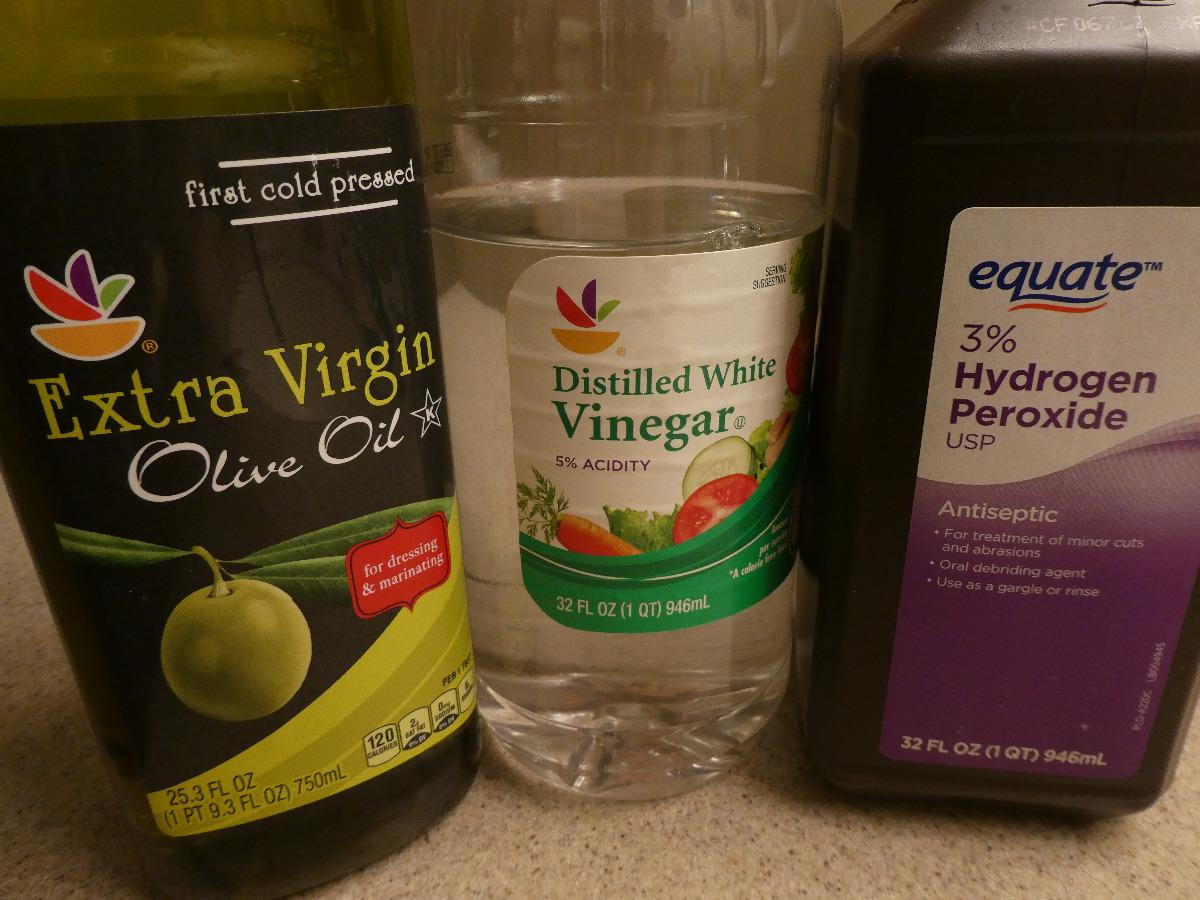Can I Put That in My Pet's Ear?

- posted: Aug. 19, 2019
Can I put that in my Pet’s Ear?
Wax in the ears and ear infections are common problems with our pets. Home remedies abound for cleaning and treating ear infections, but are they safe and are they effective? We’ll explore a few of these in this week’s blog.
- Hydrogen peroxide—while this is a common remedy for removing ear wax from human ears, our vets do not generally recommend cleaning pets’ ears with peroxide. Dogs and cats have an “L” shaped ear canal; therefore, pouring liquid that does not readily evaporate, such as peroxide, into the ear canal can actually make some ear problems worse as it keeps the ear moist which can encourage bacterial or fungal growth. Peroxide can also sting or irritate sensitive tissue so it would not be a good idea to use if your pet has a severe ear infection.
- Vinegar—the acetic acid in white or vinegar is antiseptic, especially against yeast, so, wiping your pet’s ear with a cotton ball soaked in vinegar may help to remove wax and may improve a mild ear infection. However, use of vinegar should not be a substitute for treating an ear infection. Most pets need proper antibiotic or antifungal medication to clear an infection. Take your pet to the vet if his ears are red, have a bad odor or he is scratching his ears or shaking his head for proper care.
- Olive oil, mineral oil or coconut oil—oils are relatively safe to use, and olive oil can kill ear mites by smothering them though it takes many weeks to clear ear mites with this method. However, as before, if your pet has a serious ear infection, she needs proper medication to resolve the infection. Oils may also leave the fur around the ears greasy and any of these home remedies could be potentially harmful if your pet’s ear drum is ruptured. And, speaking of ear mites, ear mites are fairly common in kittens and occasionally found in puppies but are quite uncommon in adult cats and dogs. That brown waxy debris in the ear is more commonly associated with yeast or sometimes bacteria in the ear canal. Avoid over-the-counter ear mite medications as they are often irritating to the ear canal and are ineffective against bacteria or yeast.
In general, home remedies for cleaning ears are relatively safe; however, it is best to stick with commercial ear cleaning solutions which are designed to break up wax and evaporate from the ear canal to leave it dry. Pour the solution into the canal, rub the base of the pet’s ear, allow your pet to shake his head and wipe out any excess fluid or debris with a cotton ball. Do not use cotton swabs other than to gently clean the folds on the outer ear canal. Swabs can push debris further into the canal causing an impaction.
Make sure to seek veterinary care for your pet if she has signs of an ear infection or if home remedies do not help within 2-3 days.
This blog brought to you by the Patton Veterinary Hospital serving Red Lion, York and the surrounding communities.
Schedule an appointment with our team of veterinarians today at (717) 246-3611!
Location
Patton Veterinary Hospital
425 E Broadway
Red Lion, PA 17356
